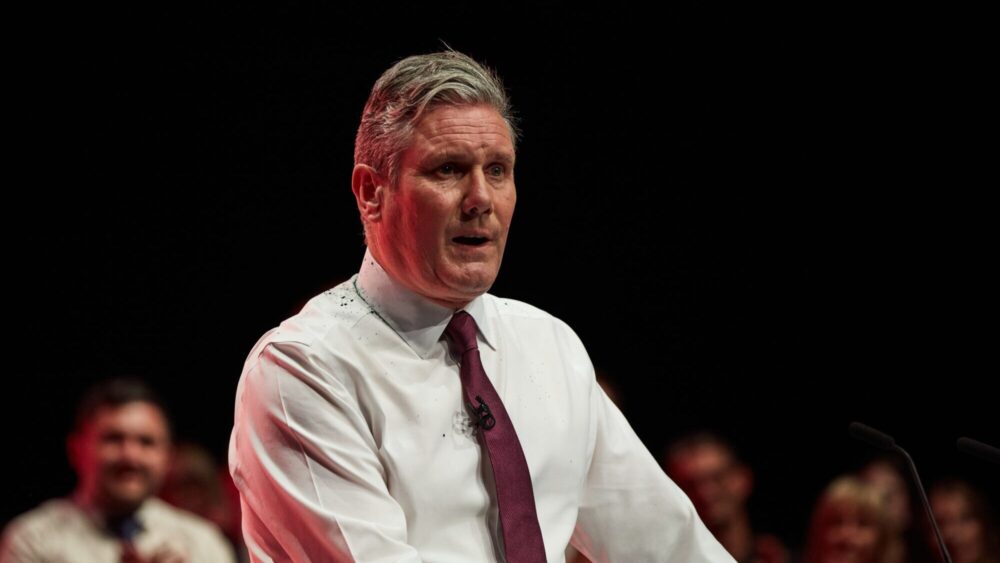
UK Labour leader Sir Keir Starmer
Martin Suker / Shutterstock.com
Despite its efforts to win over Tory voters on migration and green issues, Labour can’t help but remind them of its attachment to the EU and all things ‘woke.’ While this could reflect growing confidence in a forthcoming election win, it also foreshadows what a Labour government would look like.
London Mayor Sadiq Khan made headlines last week when he urged his party to reconsider its position on rejoining an EU customs union. He also called for a ‘youth mobility agreement’, changing visa restrictions on young people working in other European countries. To date, Labour leader Sir Keir Starmer has ruled this out.
Separately, Hilary Benn, who is a member of Starmer’s top team, said it would “make sense” for Britain to cosy up further to Brussels—a position which Shadow Foreign Secretary David Lammy has described as a top priority—while predicting that von der Leyen and co. will breathe a “sigh of relief” if Labour wins the next election.
This pro-Brussels rhetoric is particularly striking, especially following the appointment of David Cameron, who avidly campaigned for Britain to stay in the EU and now works to make Brussels the UK’s “best possible partner,” to the Tory cabinet.
Labour appears so confident about its electoral chances that it is also willing to confront more traditionalist voters who fear that some of Britain’s leading institutions have lost direction. Key among these is the National Trust, a charity for heritage conservation which has taken to adopting wokery. Starmer this week made it clear that he opposes those member groups calling on the Trust to rediscover its original aims, accusing Tories who back them of being “tangled up in culture wars of their own making.”
Though the Trust still faces criticism over its error-strewn report into how the houses it maintains were connected to slavery—among its other failings—Starmer has belittled demands for institutional change as nothing more than a “desperate” Tory attempt to remain in power.
Neither of these issues are at the top of Labour’s official list of priorities; the party is instead keen to present itself as the most economically competent grouping on offer. But they do act as a constant reminder of how Labour would act in office, and how it would attempt to rewrite history, portraying the past decade of Tory liberalism as an era of crusty traditionalism.
